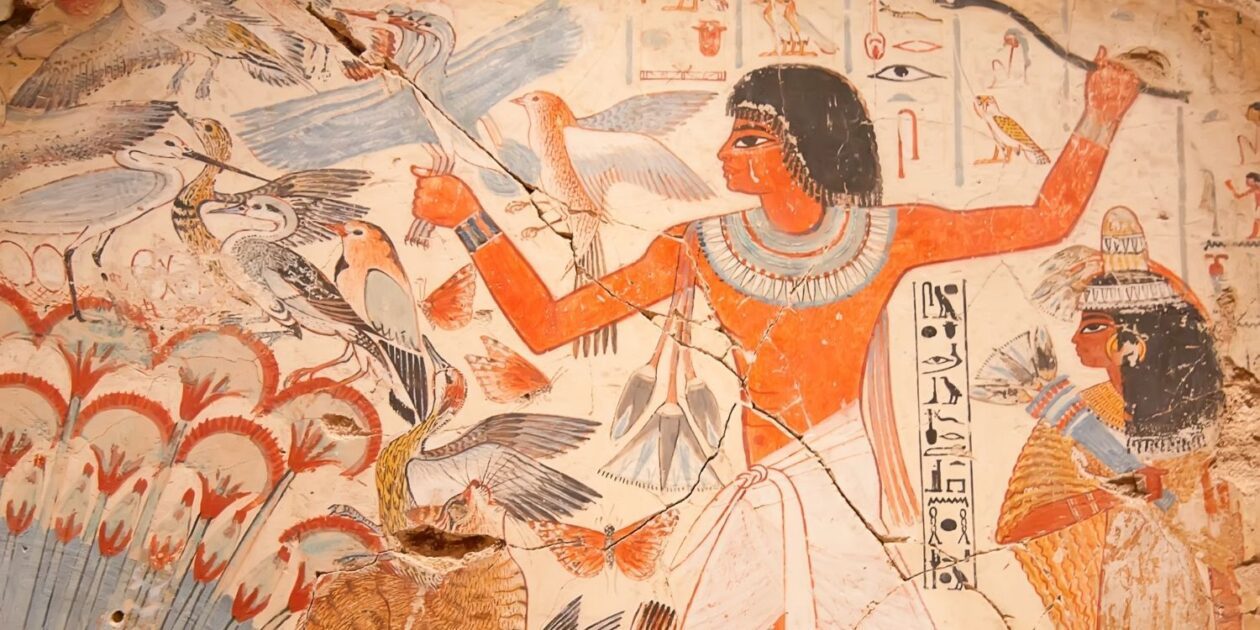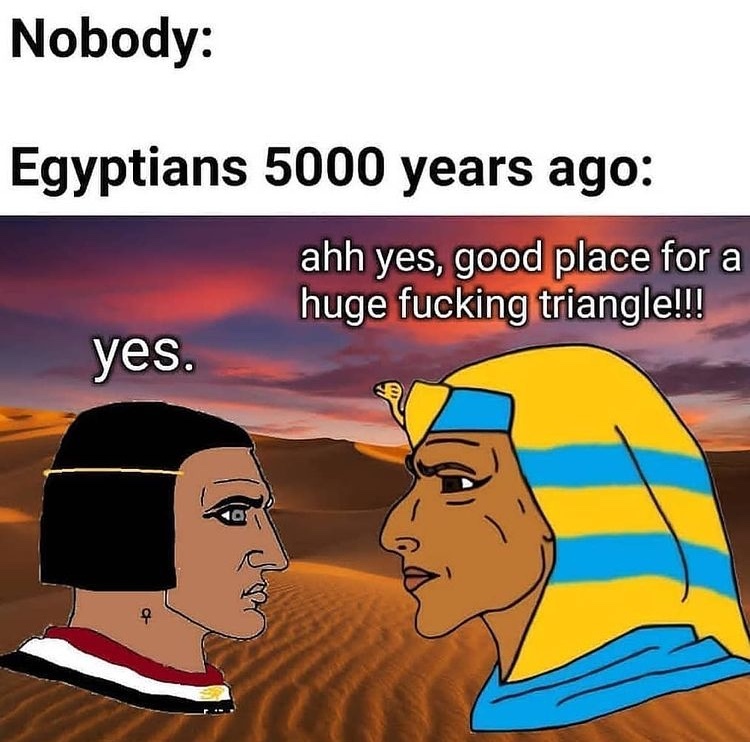Alright, listen up, folks. If you've ever wondered what the ancient Egyptians truly believed in, you're in for a wild ride. Egyptians believed the most significant aspects of life revolved around their connection with the divine, the afterlife, and the mysteries of the universe. Now, this isn't just some random guess; it's a deep dive into their culture, rituals, and philosophy that shaped their existence for thousands of years. So, grab your favorite drink, and let's unravel the secrets of one of history's most fascinating civilizations.
You see, the Egyptians weren’t just about pyramids, mummies, and hieroglyphs (although those are pretty cool). They had an entire worldview that was deeply spiritual and interconnected. Their beliefs weren’t just part of their culture—they were the foundation of their everyday lives. From the way they built their cities to how they prepared for death, every action was tied to their understanding of the cosmos. But what exactly did they consider "the most significant"? Stick around, and we’ll break it down for you.
Now, here’s the kicker: the Egyptians believed the most significant aspects of life weren’t always visible. Sure, they worshipped gods like Ra, Osiris, and Isis, but their faith went beyond just temple offerings. It was about preparing for eternity, ensuring their souls would find peace in the afterlife, and maintaining balance in both the physical and spiritual realms. And trust me, this wasn’t just a casual belief system—it was a way of life. So, let’s dive deeper, shall we?
Read also:Brittany Weighs Reunion With Jax The Inside Scoop You Need To Know
Table of Contents
- The Core of the Egyptian Belief System
- The Importance of the Afterlife
- Spirituality in Daily Life
- The Role of Gods and Goddesses
- Rituals and Ceremonies
- The Significance of Pyramids
- Ma'at: The Principle of Balance
- Sacred Symbols and Their Meanings
- The Impact of Ancient Beliefs on Modern Society
- Conclusion: Why It Still Matters Today
The Core of the Egyptian Belief System
Let’s get real for a moment. The Egyptians believed the most significant aspects of life were tied to their religion and spiritual practices. For them, life wasn’t just about the here and now—it was a preparation for what came next. Their belief system was complex, layered, and deeply intertwined with their understanding of the universe. At its core, their faith was all about balance, harmony, and the eternal cycle of life and death.
Why Spirituality Was Central to Their Existence
Think about it this way: the Egyptians didn’t separate religion from daily life. Every decision, every action, and every interaction was influenced by their spiritual beliefs. From farming to politics, everything was seen through the lens of divine will. They believed the gods controlled the Nile’s floods, the harvests, and even the weather. This meant staying on their good side was crucial for survival.
For instance, they performed rituals to ensure the Nile would flood at the right time, bringing fertile soil to their fields. These weren’t just random acts—they were carefully orchestrated ceremonies meant to maintain the cosmic order. In short, their spirituality wasn’t just a hobby; it was a necessity.
The Importance of the Afterlife
Alright, let’s talk about the elephant in the room—or should I say, the pyramid in the desert? The Egyptians believed the most significant part of life was actually the afterlife. Yeah, you heard that right. They spent their entire lives preparing for death, which they saw as just another phase of existence. To them, life was temporary, but the afterlife was eternal.
How They Prepared for Eternity
Mummification, anyone? This was no ordinary burial process. The Egyptians went to great lengths to preserve the body, believing it was essential for the soul to find its way in the afterlife. They also built elaborate tombs filled with everything a person might need in the next world—food, clothing, jewelry, even their favorite pets. It wasn’t just about luxury; it was about ensuring the deceased had everything they needed to thrive in eternity.
And let’s not forget the Book of the Dead, a collection of spells and instructions to guide the soul through the afterlife. This wasn’t just some random text—it was a roadmap to eternal peace. The Egyptians took their journey into the afterlife seriously, and their preparations reflected that.
Read also:Sara Gilberts First Wife A Comprehensive Look Into Her Life Career And Relationships
Spirituality in Daily Life
But wait, it wasn’t all about the afterlife. The Egyptians believed the most significant aspects of life were also present in their daily routines. Spirituality wasn’t confined to temples or tombs—it was everywhere. Every sunrise was a reminder of Ra’s journey across the sky, and every sunset was a symbol of his nightly voyage through the underworld.
Even simple tasks like baking bread or weaving cloth had spiritual significance. The Egyptians believed that by performing these activities with care and respect, they were honoring the gods and maintaining the cosmic balance. It was a way of life that kept them connected to the divine, no matter what they were doing.
The Role of Gods and Goddesses
Now, let’s talk about the big players in this cosmic drama—the gods and goddesses. The Egyptians believed the most significant aspects of life were influenced by these powerful deities. From Ra, the sun god, to Osiris, the god of the afterlife, each god had a specific role to play in the universe.
And here’s the thing: the Egyptians didn’t worship just one god—they had a whole pantheon of them. Each city had its own patron deity, and each deity had its own temples, rituals, and followers. This made their religious landscape incredibly diverse and rich. But no matter which god they worshipped, the Egyptians always believed in the interconnectedness of all things.
Rituals and Ceremonies
Let’s not forget the rituals. The Egyptians believed the most significant moments in life were marked by ceremonies that honored the gods. These weren’t just fancy parties; they were deeply meaningful events that reinforced their connection to the divine.
- Birth ceremonies to celebrate new life
- Marriage rituals to bless unions
- Funeral rites to guide the soul to the afterlife
Each ritual had its own set of traditions and practices, but they all shared a common goal: to maintain harmony between the physical and spiritual worlds. It was a way of life that kept them grounded in their beliefs, no matter what challenges they faced.
The Significance of Pyramids
And of course, we can’t talk about the Egyptians without mentioning the pyramids. These massive structures weren’t just architectural marvels—they were symbols of their belief in the afterlife. The Egyptians believed the most significant monuments were those that ensured the pharaoh’s safe passage into eternity.
Pyramids were designed to align with the stars, serving as a bridge between the earthly realm and the heavens. They were also filled with treasures and texts to guide the pharaoh’s soul on its journey. It was a testament to their dedication to the afterlife and their belief in its importance.
Ma'at: The Principle of Balance
Now, here’s a concept that ties everything together: Ma'at. The Egyptians believed the most significant principle in life was balance, represented by the goddess Ma'at. She was the personification of truth, justice, and cosmic order, and her influence was felt in every aspect of their lives.
Ma'at wasn’t just a goddess—she was a way of life. The Egyptians strived to live in harmony with her principles, ensuring that their actions reflected truth and justice. This was especially important for the pharaohs, who were seen as the earthly representatives of the gods. By maintaining Ma'at, they believed they could ensure the prosperity and stability of their civilization.
Sacred Symbols and Their Meanings
Finally, let’s talk about symbols. The Egyptians believed the most significant aspects of life were often represented by sacred symbols. From the ankh, symbolizing life, to the scarab, representing rebirth, these symbols were everywhere. They appeared in art, jewelry, and even everyday objects.
Each symbol had its own meaning and significance, but they all shared a common purpose: to connect the Egyptians to the divine. By incorporating these symbols into their lives, they reinforced their spiritual beliefs and strengthened their connection to the universe.
The Impact of Ancient Beliefs on Modern Society
Fast forward to today, and you can still see the influence of ancient Egyptian beliefs in modern society. From astrology to New Age spirituality, many of our contemporary practices have roots in their philosophy. The Egyptians believed the most significant lessons they learned were timeless, and it seems they were right.
Whether it’s through our fascination with pyramids or our interest in the afterlife, the Egyptians continue to inspire us. Their emphasis on balance, spirituality, and the interconnectedness of all things resonates with people across the globe. It’s a reminder that, no matter how much time has passed, some truths remain universal.
Conclusion: Why It Still Matters Today
So, there you have it—the Egyptians believed the most significant aspects of life were rooted in spirituality, balance, and the afterlife. Their culture, rituals, and philosophy continue to captivate us, offering insights into the human condition that are as relevant today as they were thousands of years ago.
Now, here’s the question: what can we learn from them? In a world that often feels chaotic and uncertain, the Egyptians remind us of the importance of balance, connection, and purpose. So, take a moment to reflect on their wisdom, and maybe, just maybe, you’ll find a little piece of eternity in your own life.
And don’t forget to share your thoughts in the comments below. Did you learn something new? Do you have a favorite Egyptian symbol or ritual? Let’s keep the conversation going! Thanks for reading, and until next time, stay curious!


